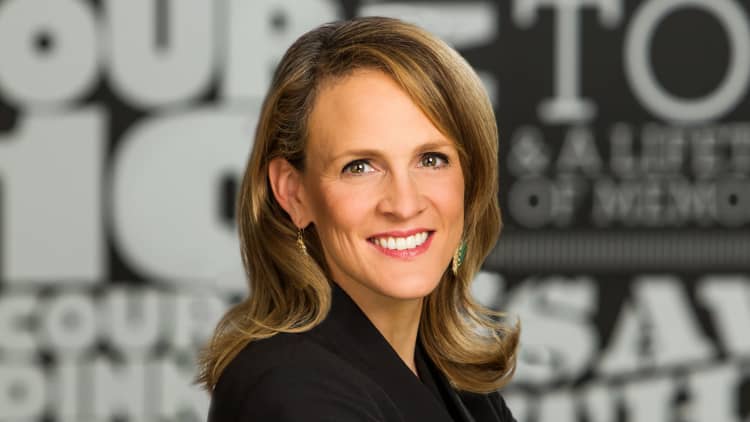In August, a leaked internal memo penned by former Google engineer James Damore criticizing the company's diversity efforts ignited a heated national discussion on women and people of color in the workplace. Immediately, the memo stirred up a whirlwind.
Google terminated Damore. He announced he would seek legal recourse. And many prominent figures spoke out against it. Sheryl Sandberg, Facebook COO and author of "Lean In," wrote a social media post saying, "Inequality in tech isn't due to gender differences. It's due to cultural stereotypes that persist."
"We all need to do more," she added.
Susan Wojcicki, CEO of YouTube, which Google owns, called the memo "yet another discouraging signal to young women who aspire to study computer science."
Adam Grant, bestselling author and Wharton School of the University of Pennsylvania professor, posted a response debunking several of the suggestions Damore made.
But the memo also had an important long term effect. And it's one Damore likely did not intend.
According to Christa Quarles, CEO of online restaurant reservation network OpenTable, the memo made Silicon Valley leaders more aware of conscious and unconscious discrimination against women and people of color in the workplace.
"I think what's different now, versus even six months or a year ago, is that people are on notice," she tells CNBC Make It, "and that people are not letting things slide."
It also stirred many to double down on their efforts to encourage fair employment and recruitment practices, according to Quarles.
More leaders are trying to get female venture capitalists on their boards, says Quarles, who previously was an executive at The Walt Disney Company. The results could be good for business, as research shows that companies with more women in the C-Suite are more profitable.
The "little injustices" that happen daily to women, such as a team assuming that a female associate will grab coffee for guests, are being "called out," Quarles tells CNBC Make It.
The controversial 10-page manifesto suggested that women have a harder time getting raises or promotions because their extroversion is expressed as "gregariousness rather than assertiveness." It said that women don't advance in their careers partly because that they are innately "neurotic."
There is "heightened awareness," on gender and racial equality at work, Quarles says, which she describes as "awesome." And more managers, both men and women, are having conversations on the topic.

The memo is one of several stories that have made people more aware about the horrors many women face at work, including stories on Uber's culture of sexual harassment, sexual assault allegations against top Silicon Valley investor Dave McClure, sexual harassment charges against venture capitalist Justin Caldbeck and others. And it's not just Silicon Valley. Accusations of harassment and sexual assault against Harvey Weinstein have once again opened the floodgates.
"It sort of feels that everyone — the nerves have opened up and you can feel it," she says. "You can sense it, you can taste it."
In light of the Google memo, more women are coming together in "sisterhood," in Silicon Valley and on Wall Street, says Quarles, who worked in finance for more than a decade.
Quarles regularly meets up with her former classmates from the Harvard Business School or Carnegie Mellon. The memo, she says, has encouraged women to talk and meet up even more as well as find ways to mentor younger women.
At the recent Fortune Brainstorm Tech event, Quarles became visibly frustrated when another audience member suggested that women don't support each other professionally.
She called the assumption "bull----."
"In Silicon Valley today, there is a sisterhood of women who are supporting each other," she said during the event's audience open mic session.
Talking about that moment now with CNBC Make It, she says she felt compelled to respond to the man who made the comment.

"It deflects from the bigger issues and that's why I think it's dangerous," she says. "It distracts, it confuses. It, you know, basically says 'Well, now I don't have to look at the bigger issue,' which is that there's real bias and real problems going on."
To start tackling the problem, Quarles is looking inward.
At OpenTable, 45 percent of the executive team are women, much higher than the 14 percent average for Silicon Valley companies.
But she recognizes that even at her company, things are not perfect. Quarles recently "overhauled" OpenTable's recruitment policies, with an emphasis on increasing diverse talent.
"I look at [the memo] and say, 'It's a chance to have conversation and we're all hyper aware,'" she says. "So let's get in a room and go have a conversation."
That conversation can't be just among women, she says.
"I do believe that if you bring men along for the ride, you're going to be a lot more successful."
Check out the surprising interview question Quarles asks every job candidate

Like this story? Like CNBC Make It on Facebook.


